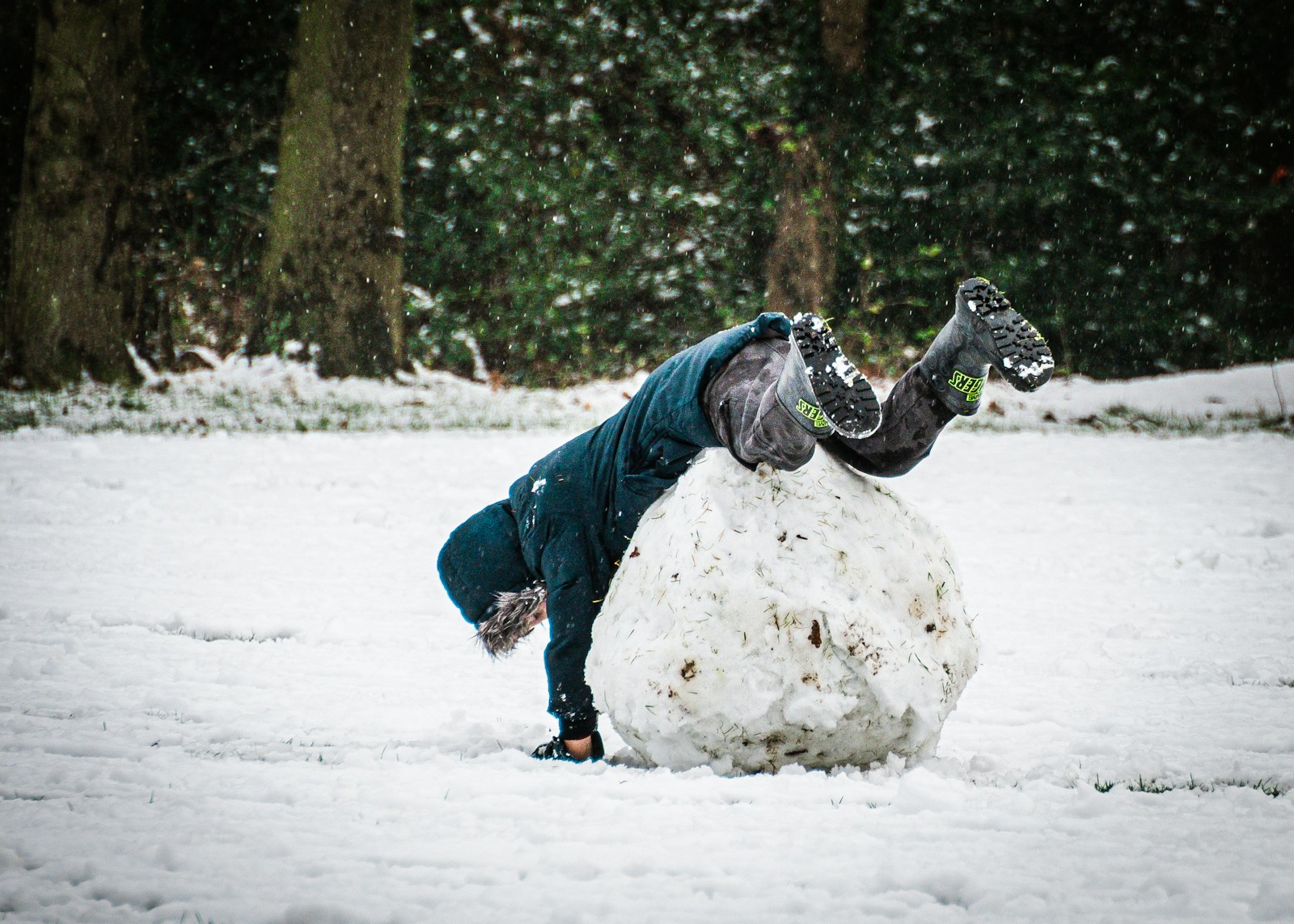
雪人
xuě rén

snowman
In Chinese, the word 'snowman' is '雪人', pronounced as 'xuě rén'. It has the same usage like in English, referring to an anthropomorphic snow sculpture, often built by children in regions with sufficient snowfall.
Example sentences using: 雪人
我的雪人很大。
Wǒ de xuěrén hěn dà.

My snowman is very big.
This sentence is expressing the size of one's snowman, using the adjective 'big' to describe it.
你看到那个雪人了吗?
Nǐ kàndào nàgè xuěrénle ma?

Did you see that snowman?
This sentence is asking if the respondent saw a particular snowman.
小明在做雪人。
Xiǎo mínɡ zài zuò xuě rén.

Xiao Ming is making a snowman.
This sentence is stating that a person named Xiao Ming is currently in the process of making a snowman.
雪人融化了。
Xuě rén rónɡ huà le.

The snowman has melted.
This sentence is stating that the snowman has undergone the process of melting.
我喜欢雪人。
Wǒ xǐ huān xuě rén.

I like snowmen.
This sentence is expressing personal preference for snowmen.
她的雪人是黄色的。
Tā de xuě rén shì huáng sè de.

Her snowman is yellow.
This sentence is describing the color of someone else's snowman as being yellow.
雪人戴着帽子。
Xuě rén dài zhě mào zi.

The snowman is wearing a hat.
This sentence is indicating that the snowman has a hat on it.
我们做的雪人很好看。
Wǒ men zuò de xuě rén hěn hǎo kàn.

The snowman we made is pretty.
This sentence is expressing a collective opinion about the aesthetic of the snowman that was built by the speaker and others.
雪人的眼睛是石头。
Xuě rén de yǎn jīng shì shí tou.

The snowman's eyes are stones.
This sentence is describing the material used to create the eyes of the snowman, in this case, stones.
雪人站在户外。
Xuě rén zhàn zài hù wài.

The snowman is standing outdoors.
This sentence is indicating the location of the snowman as being outdoors.